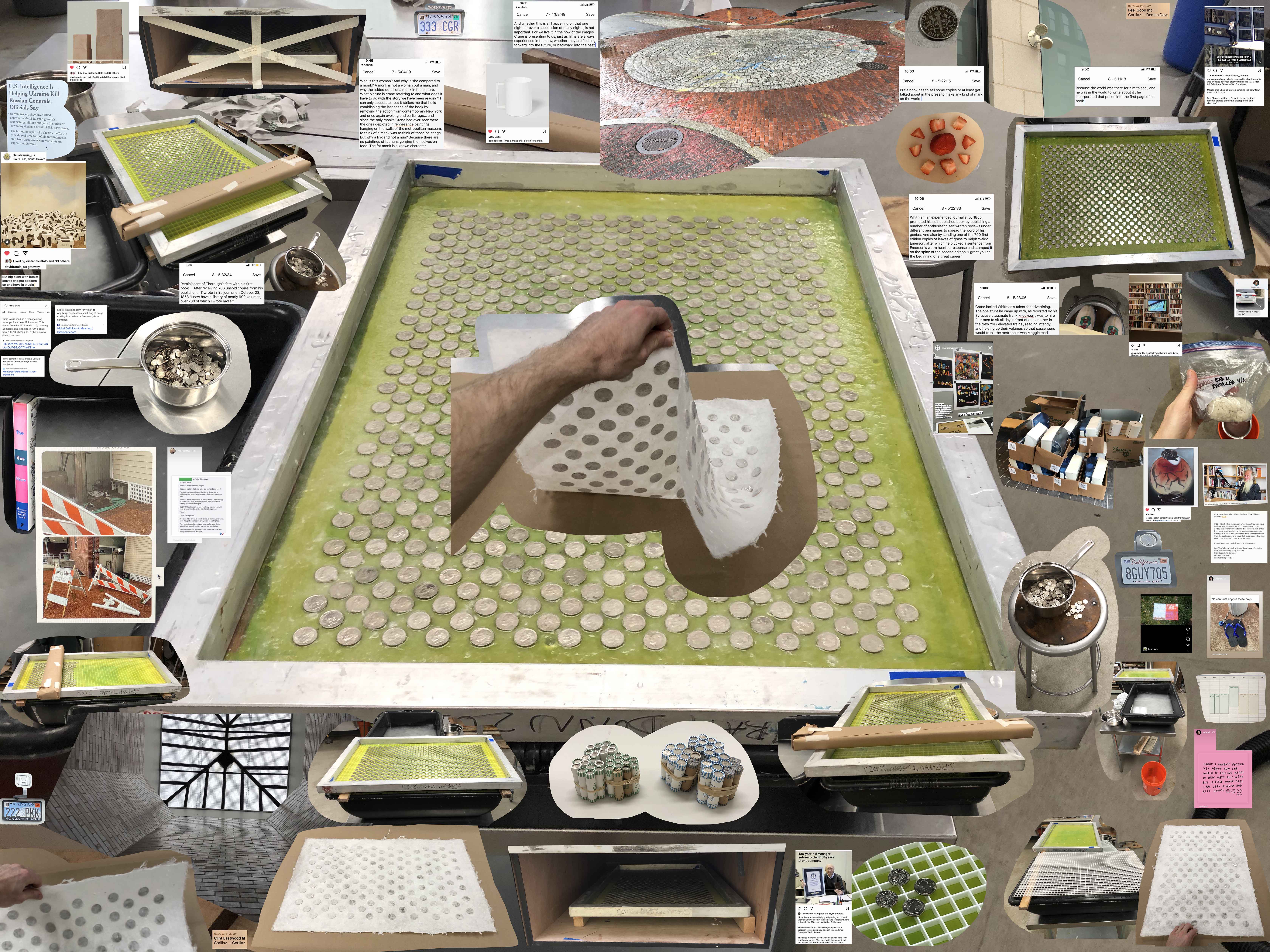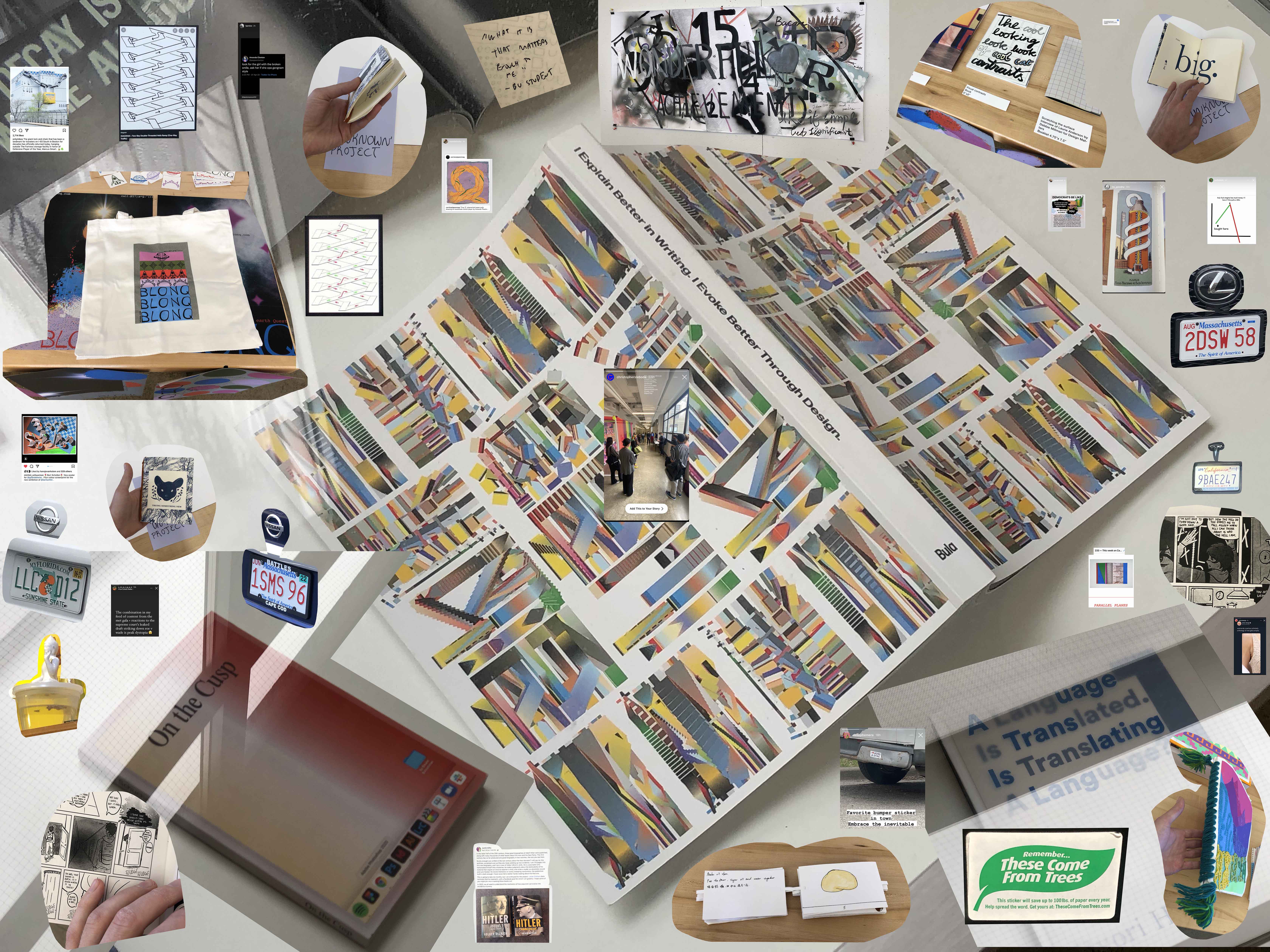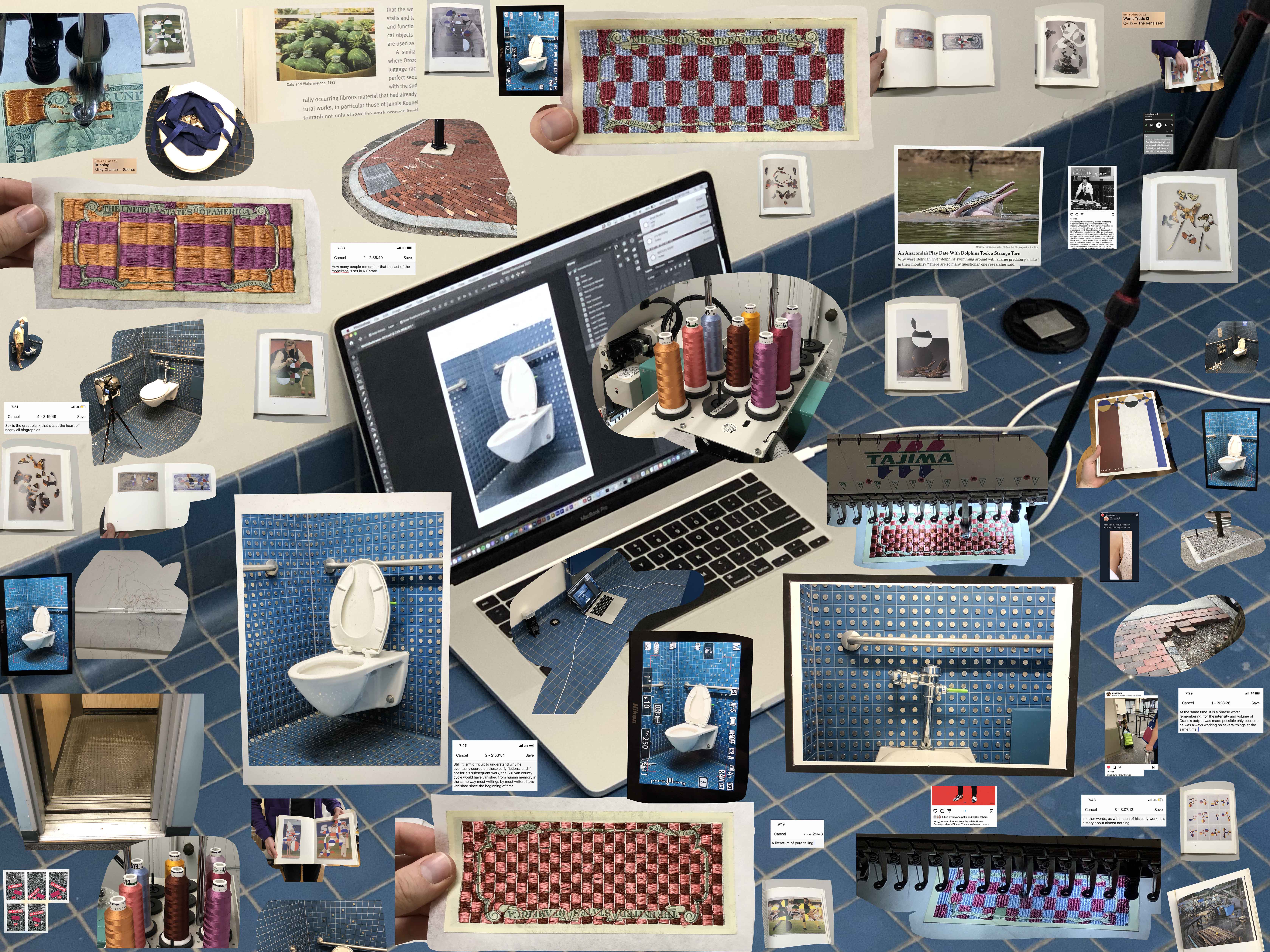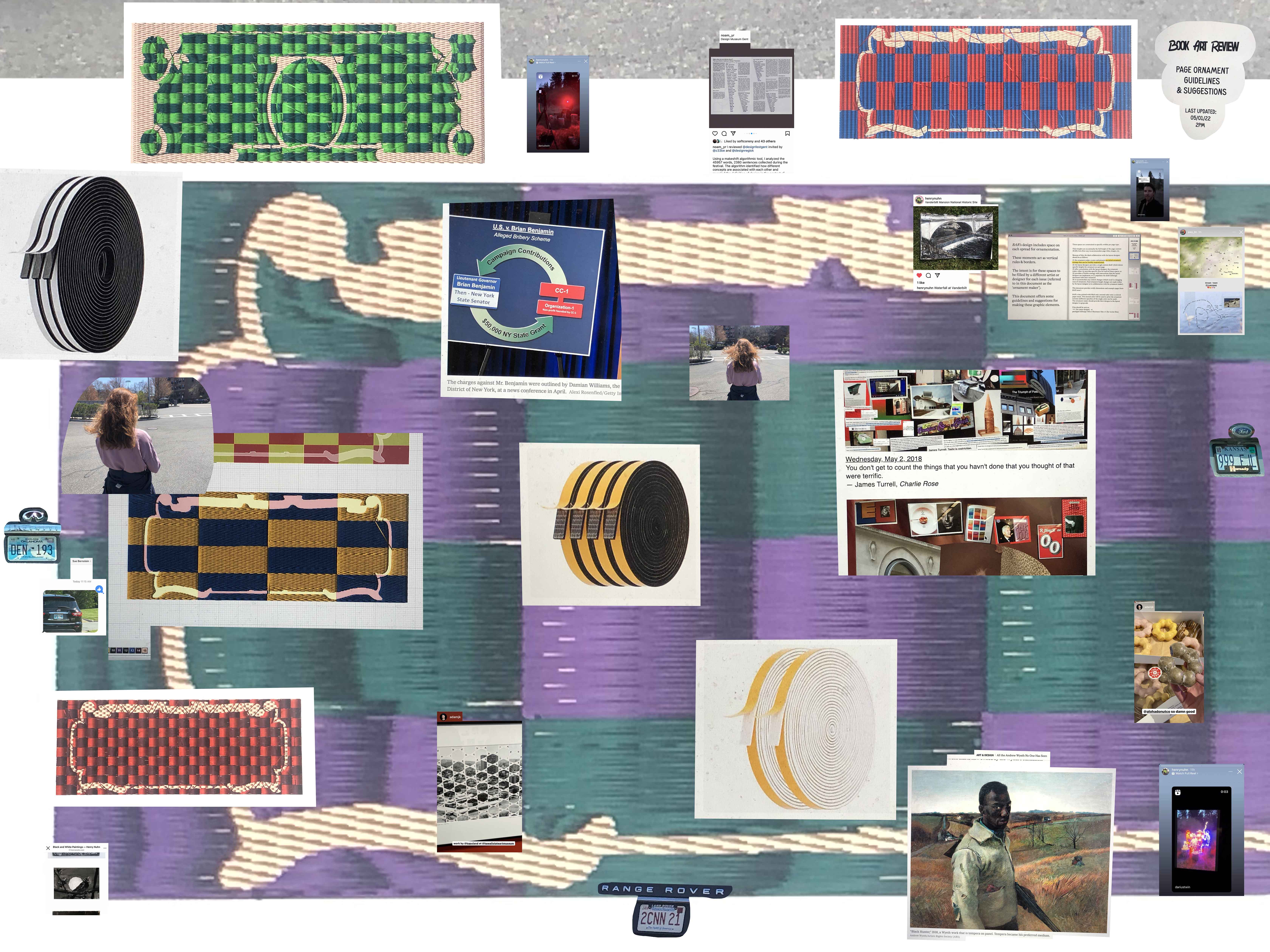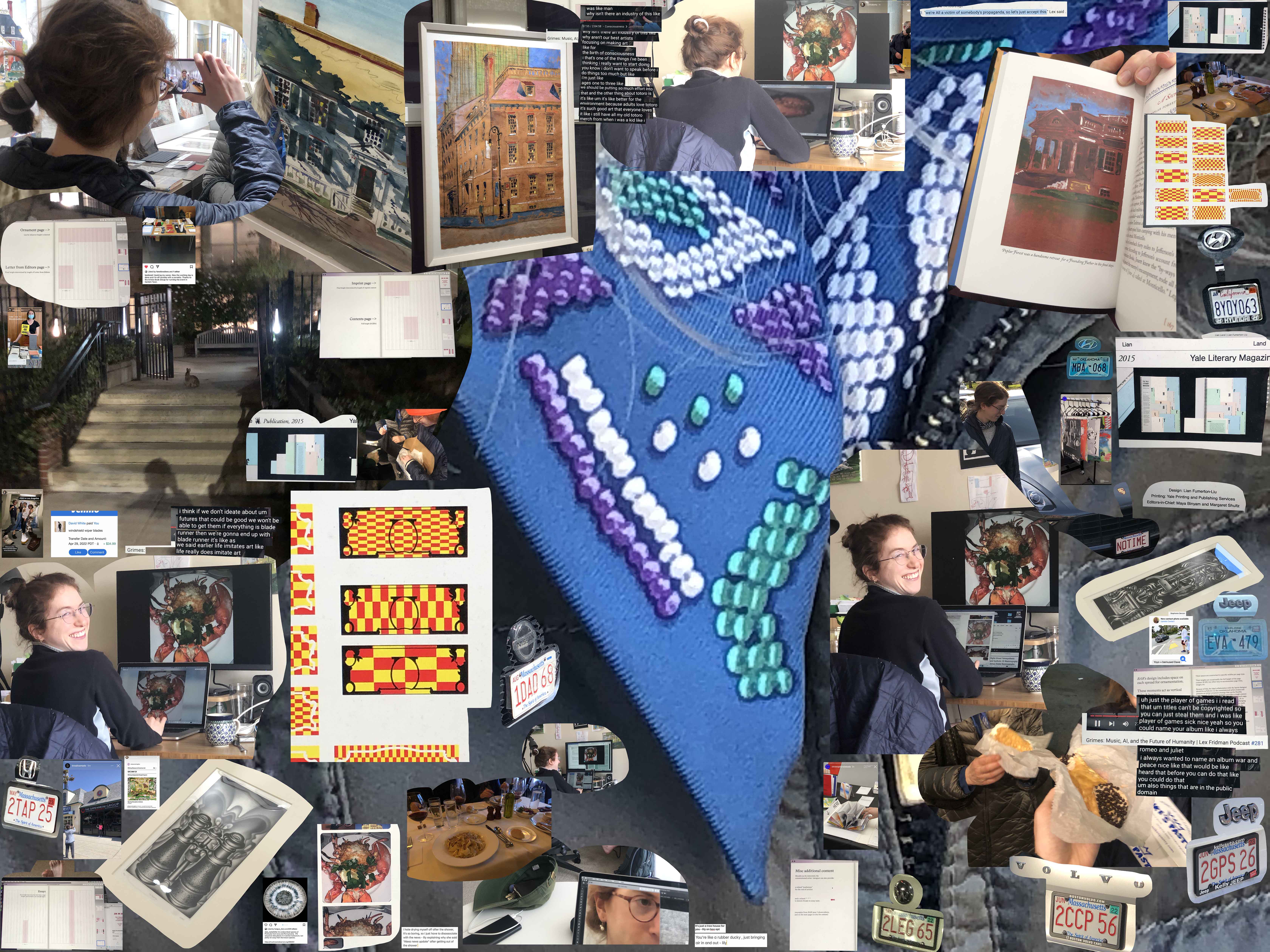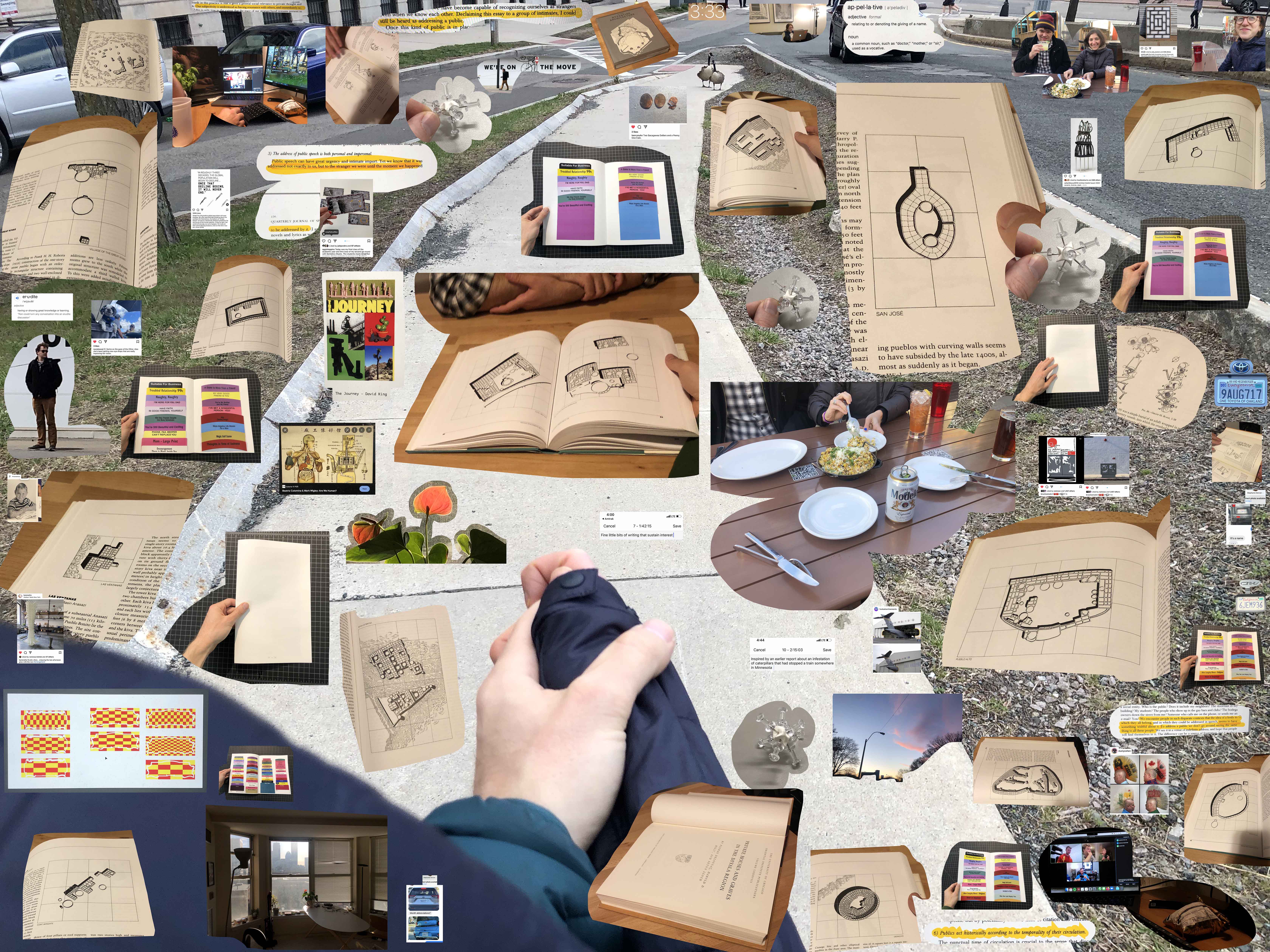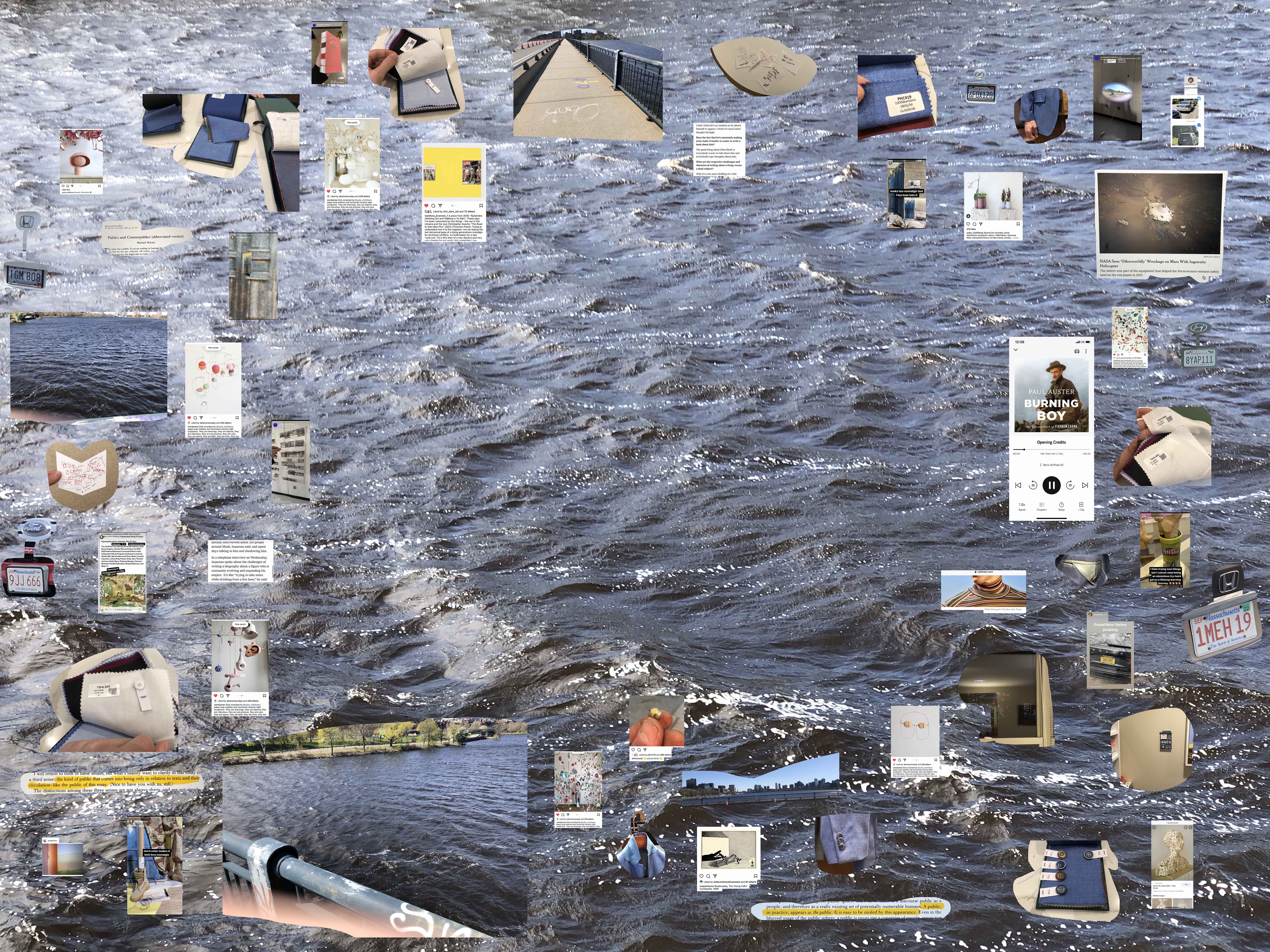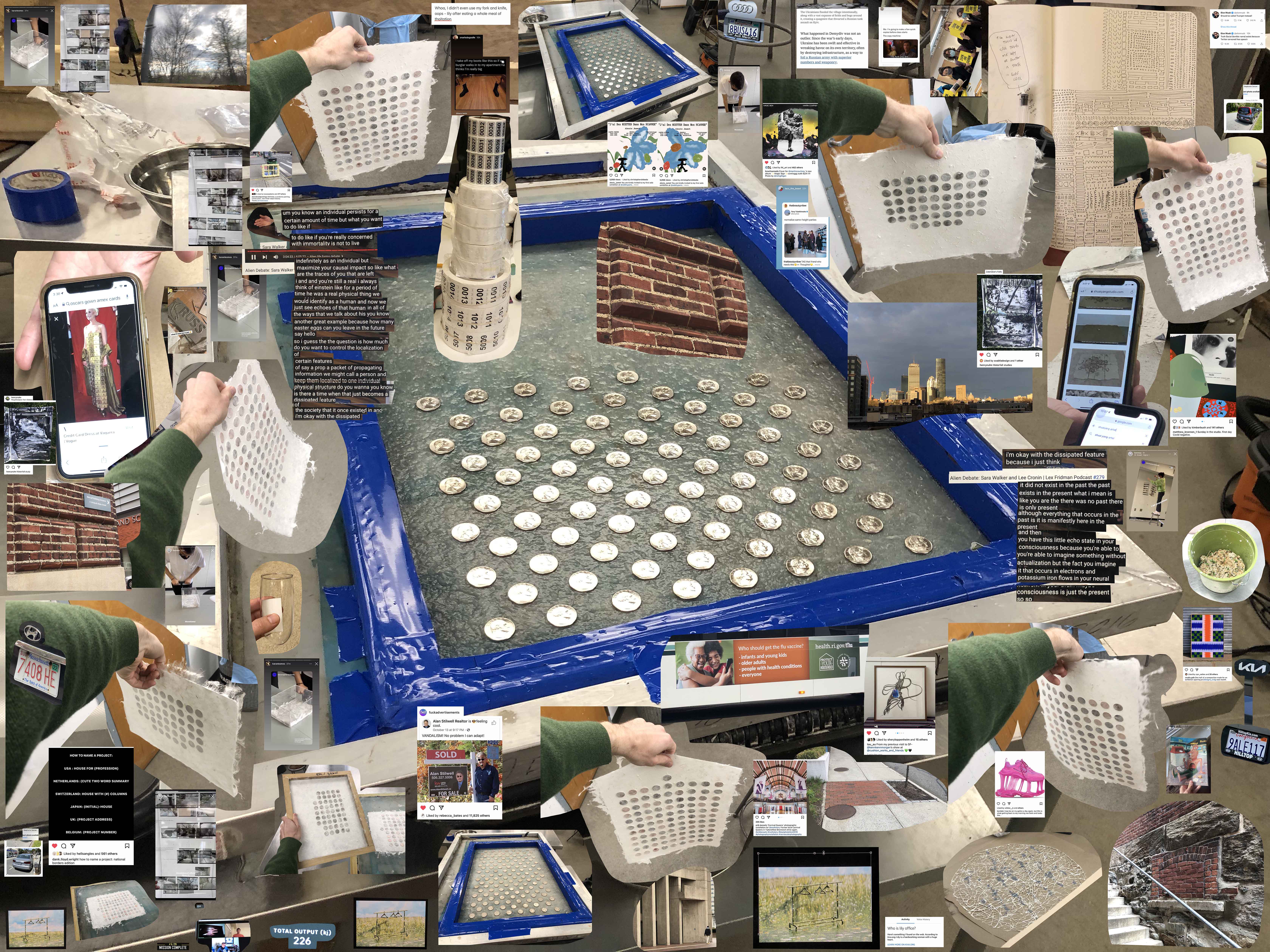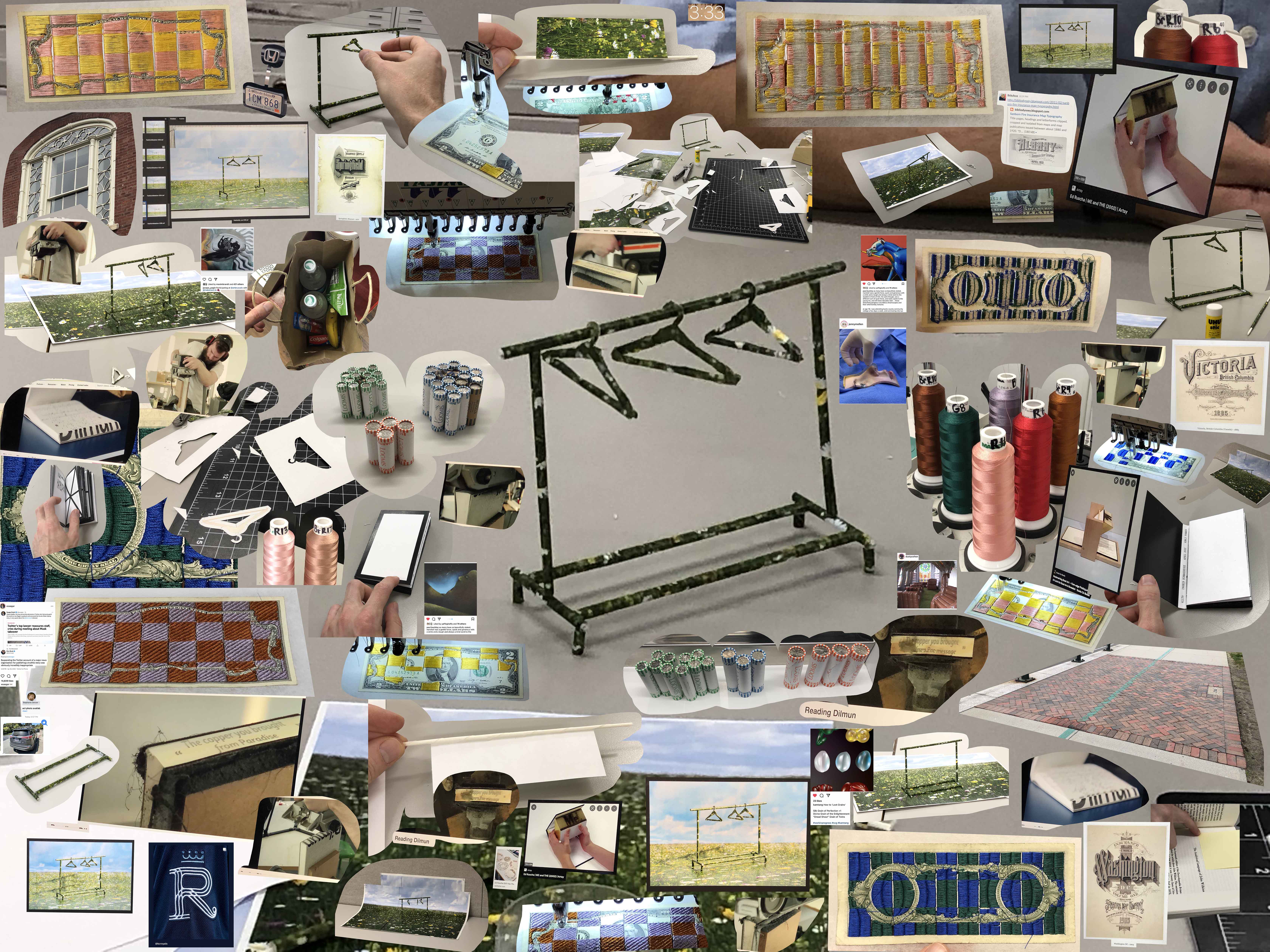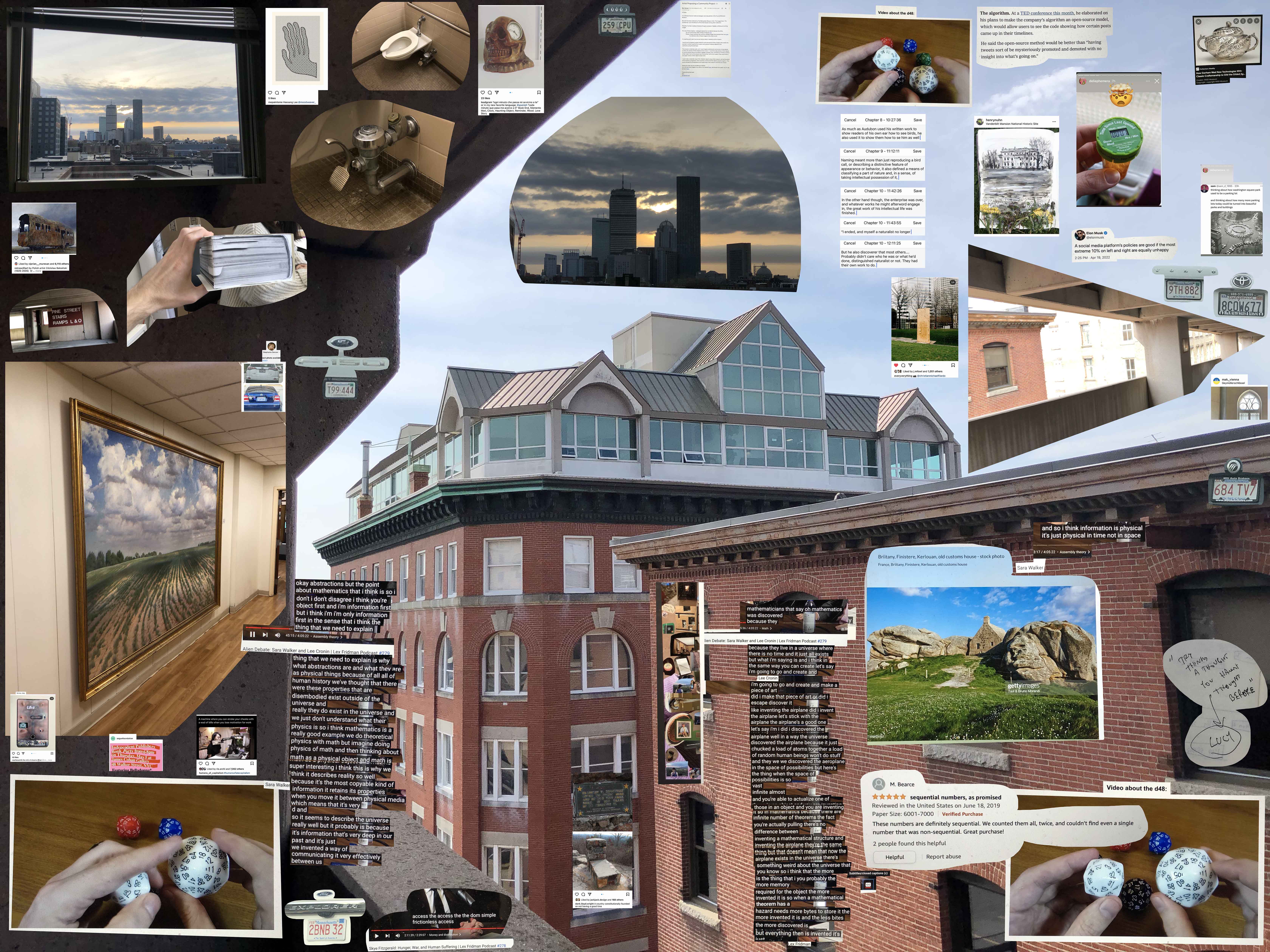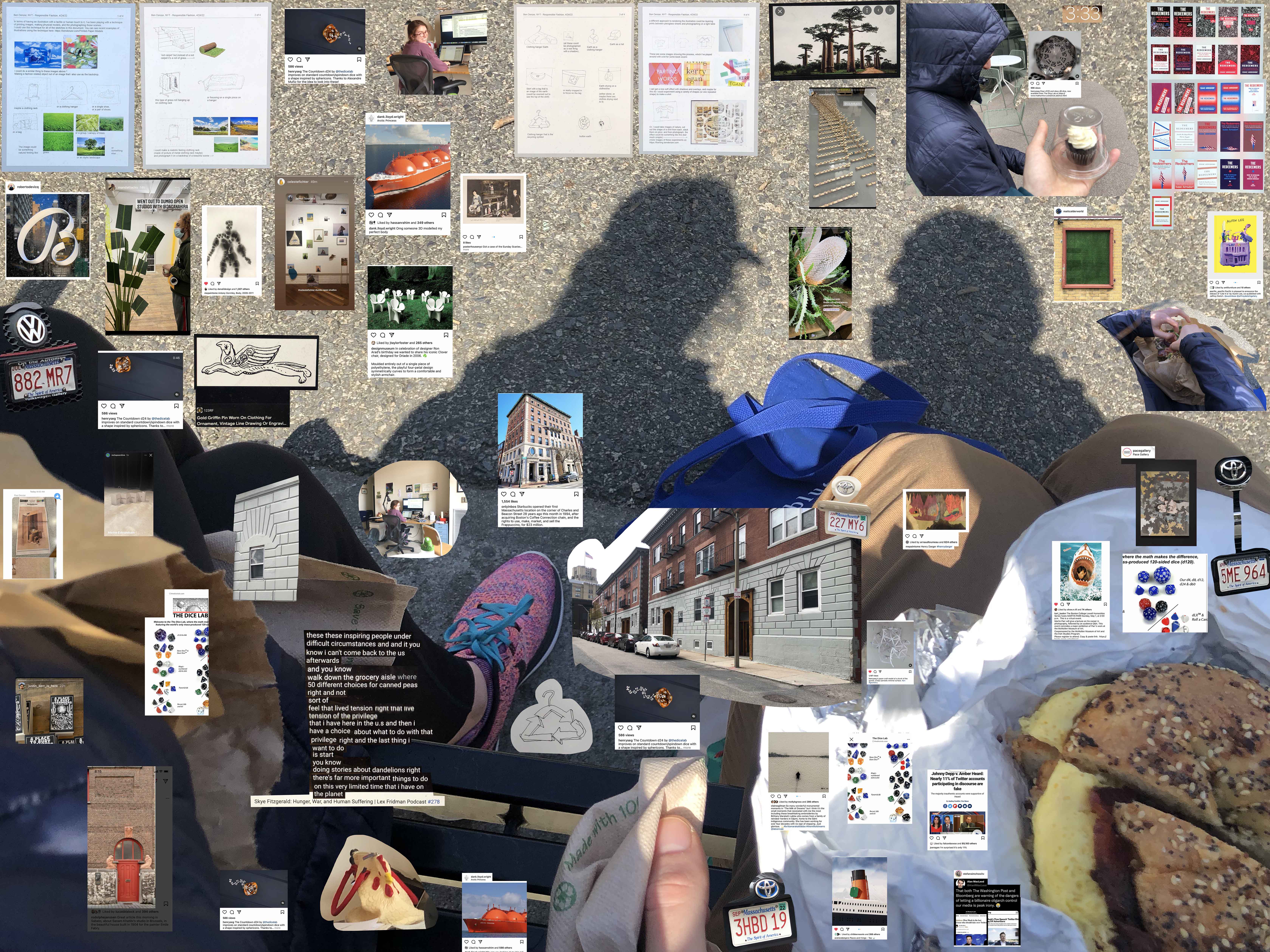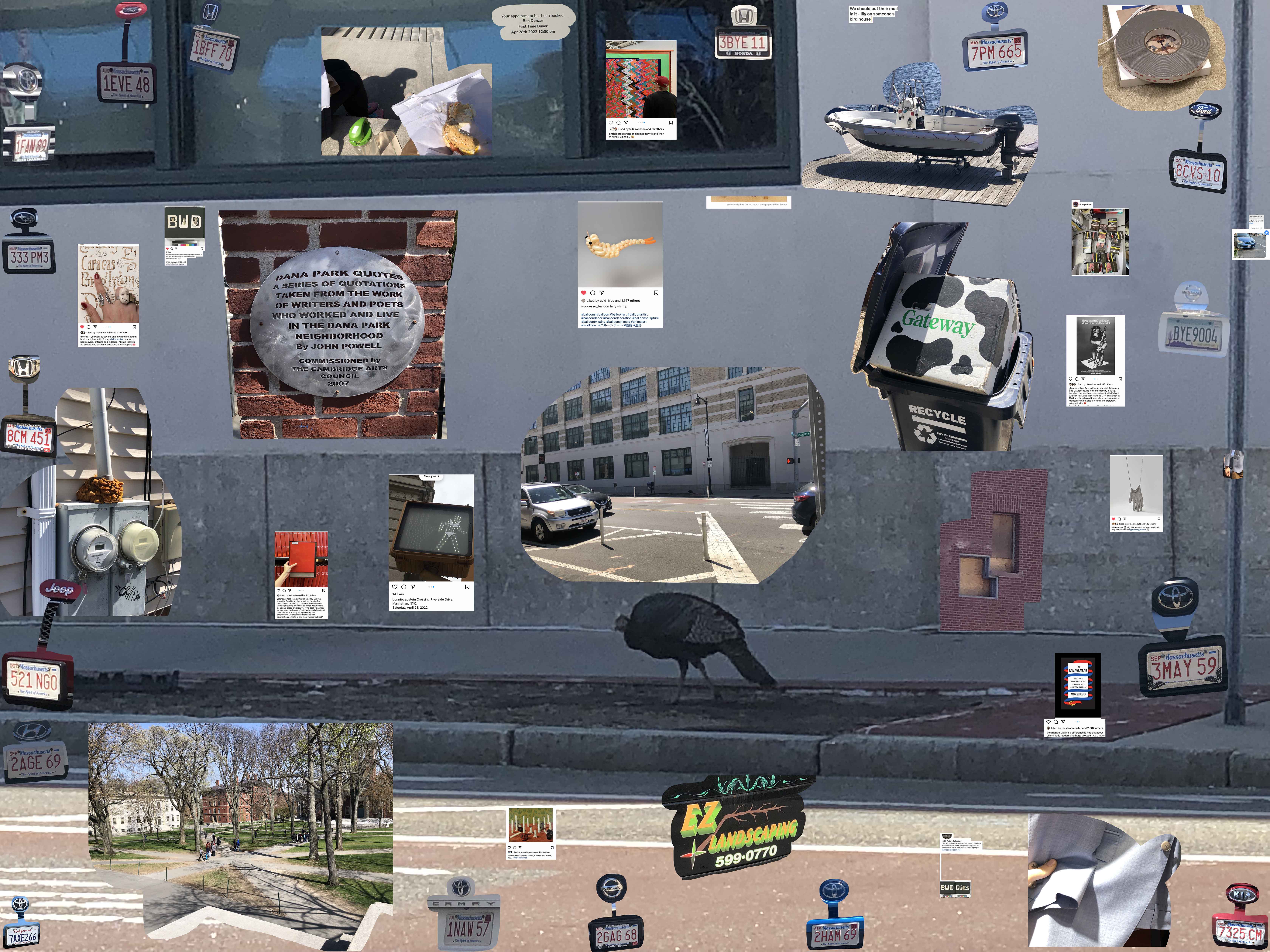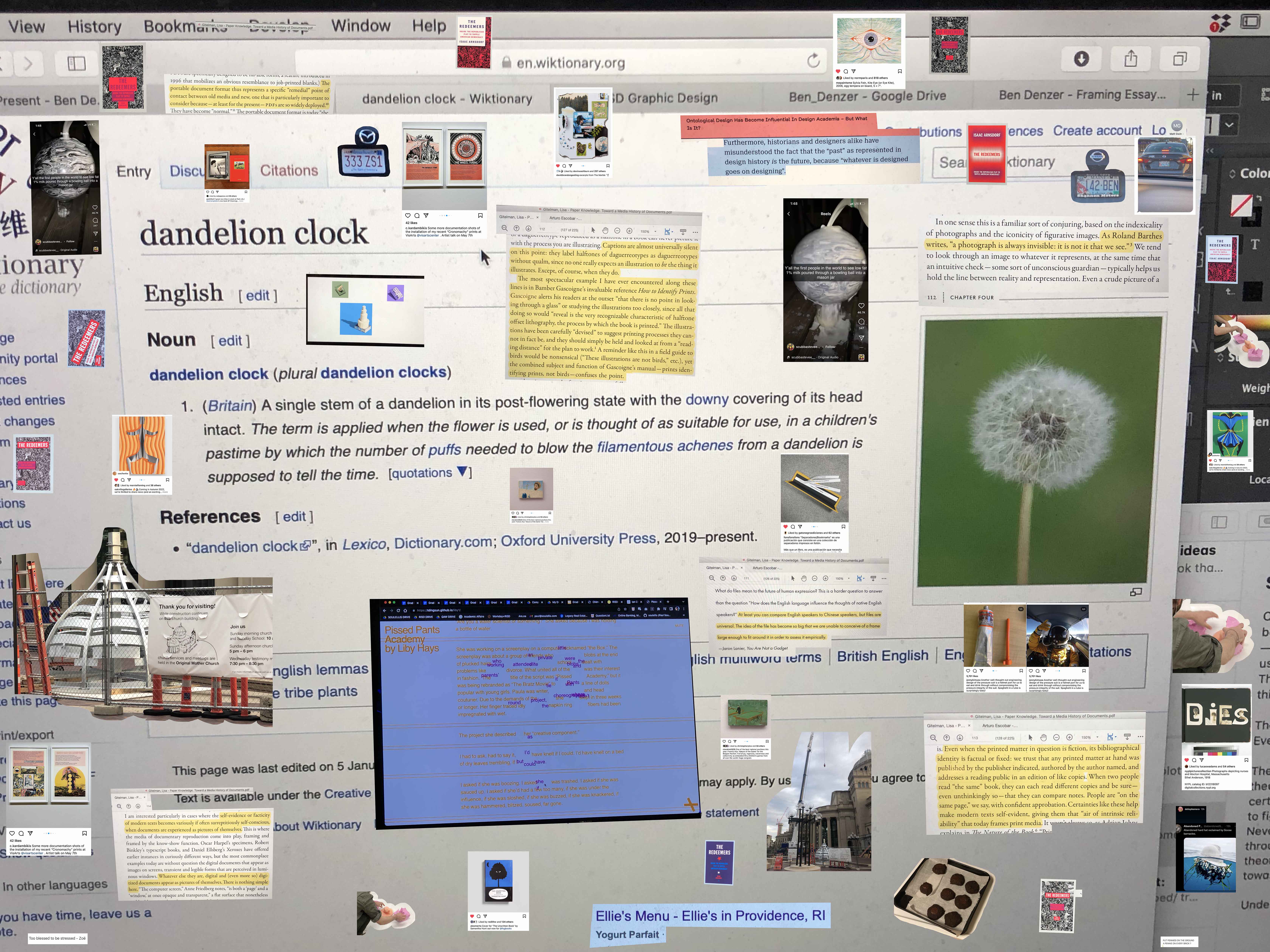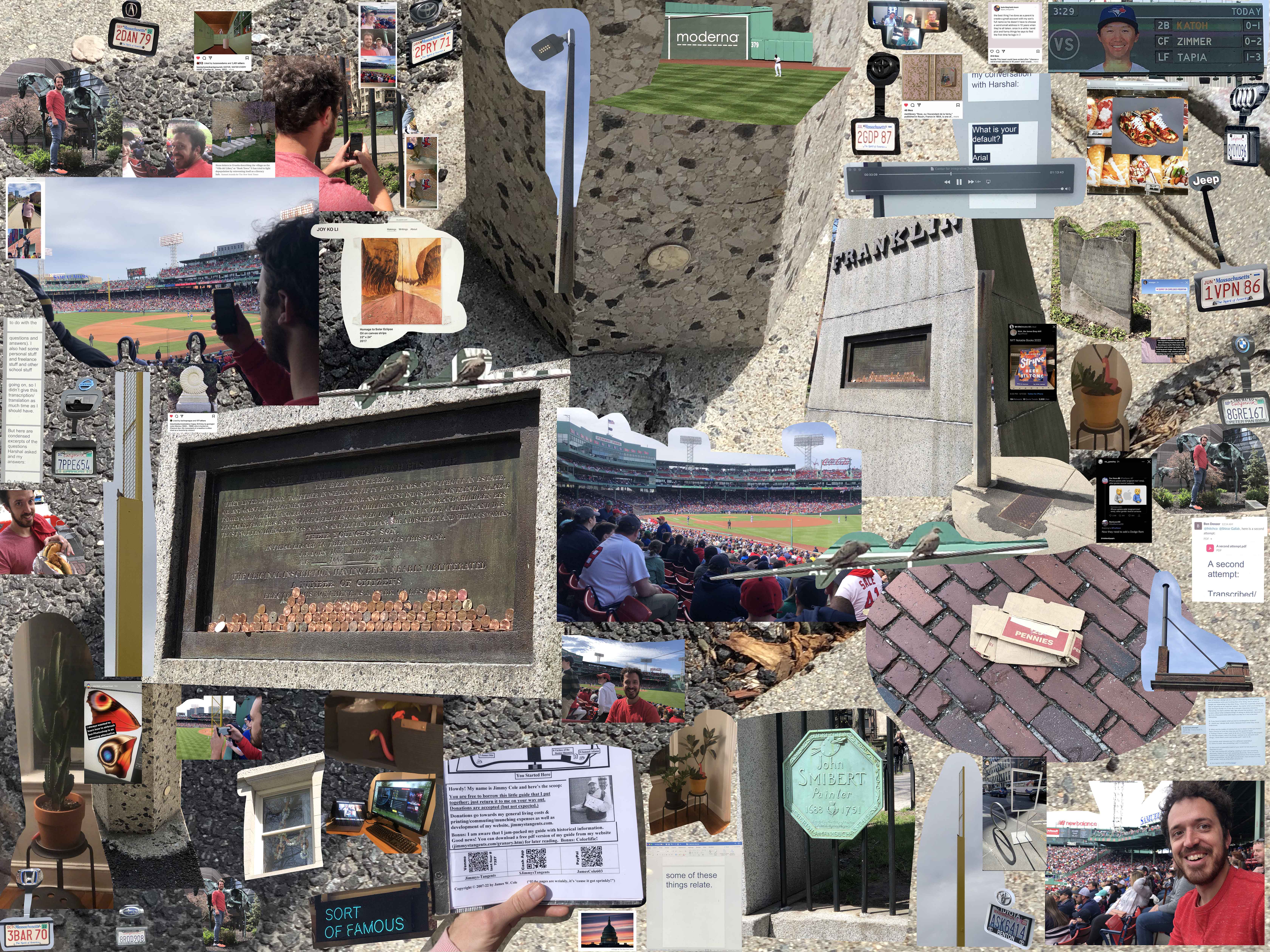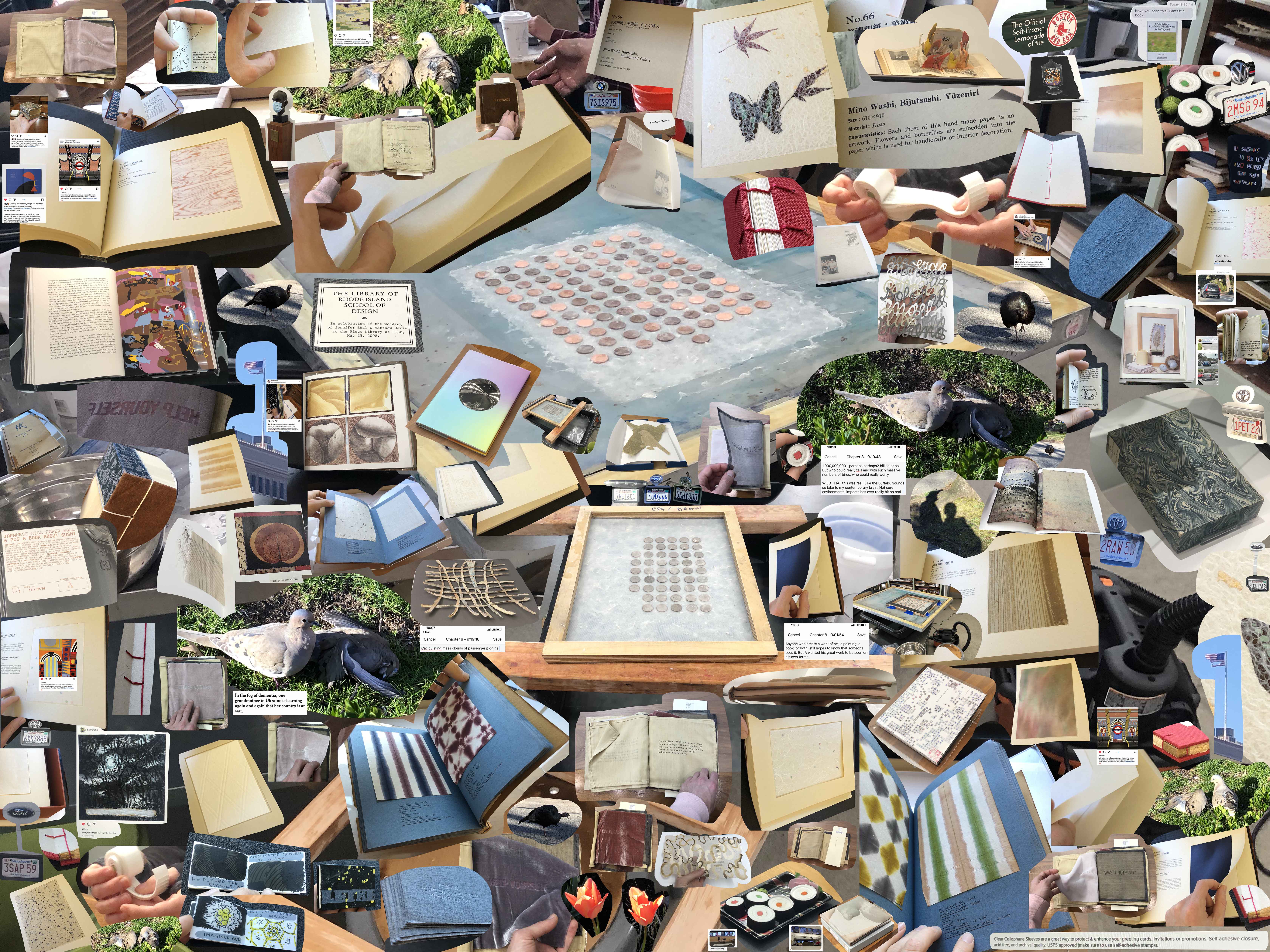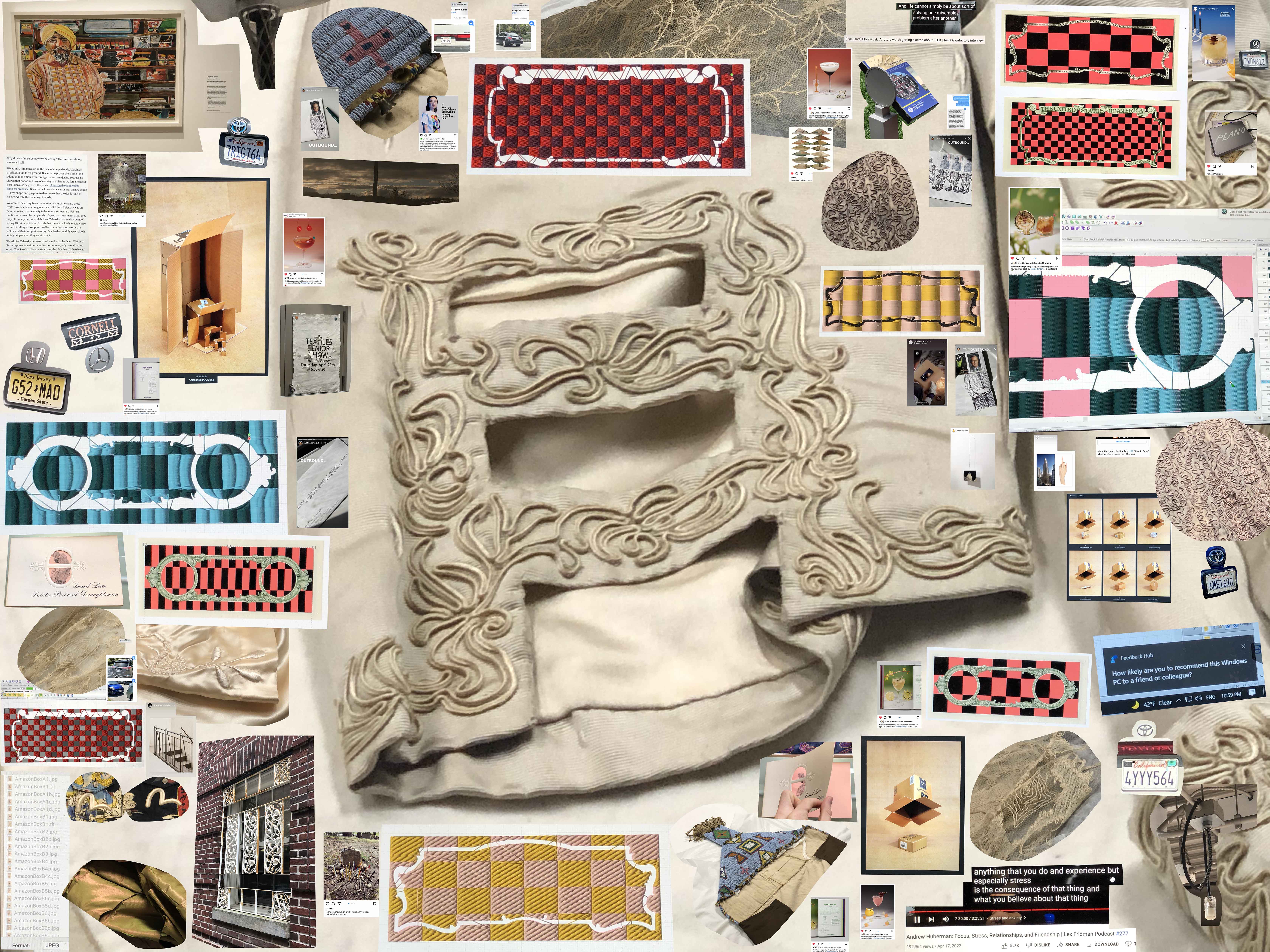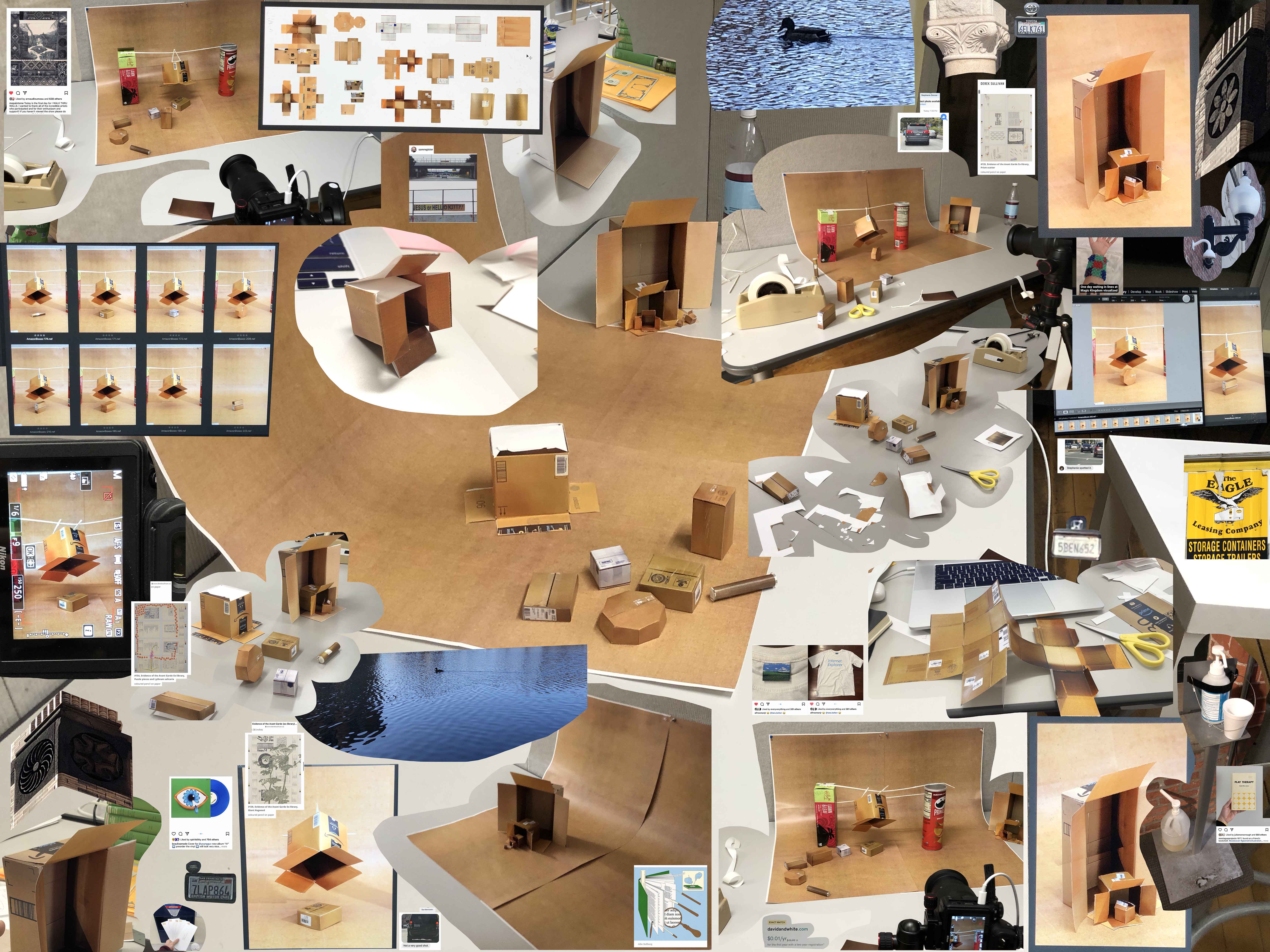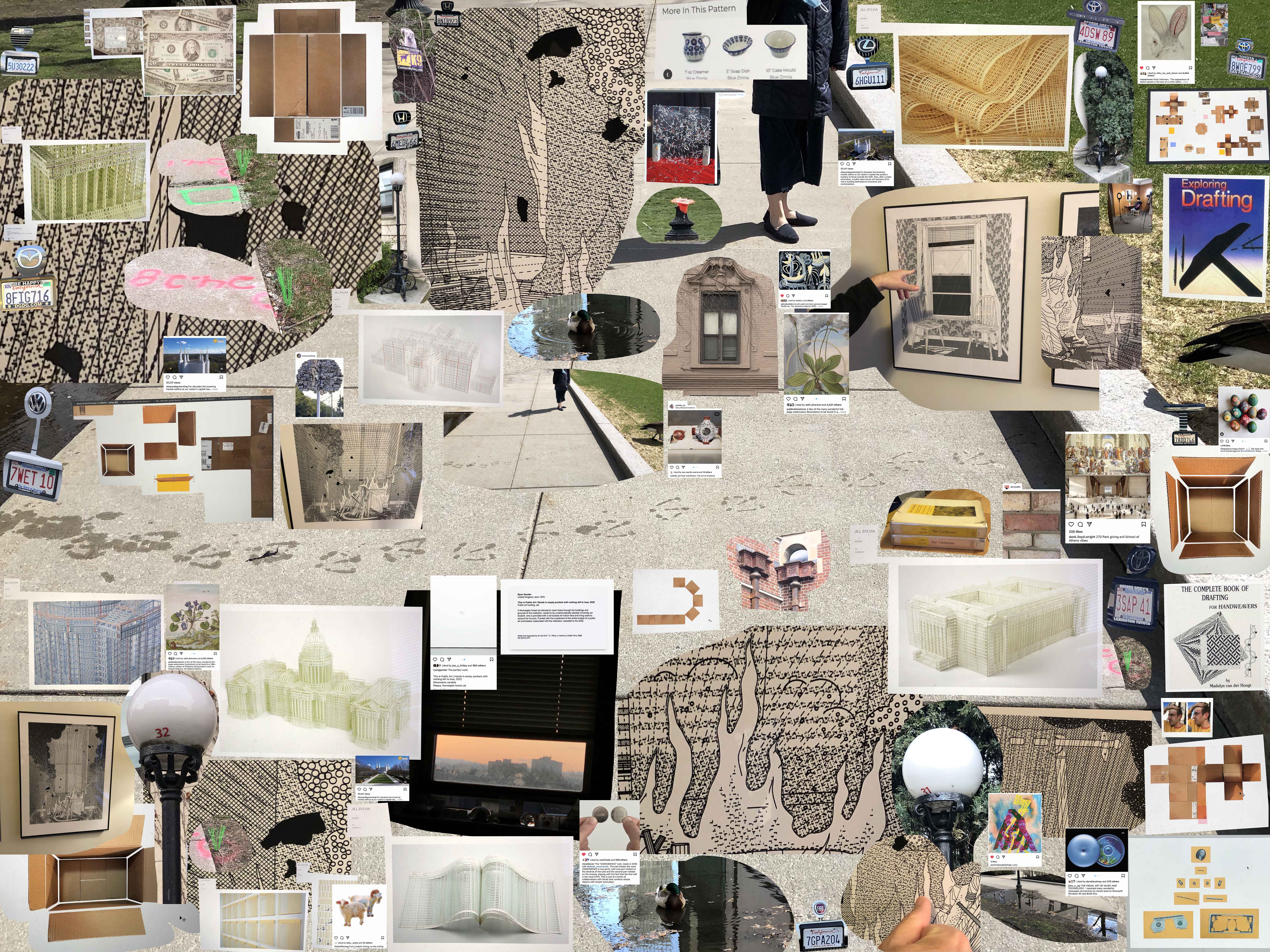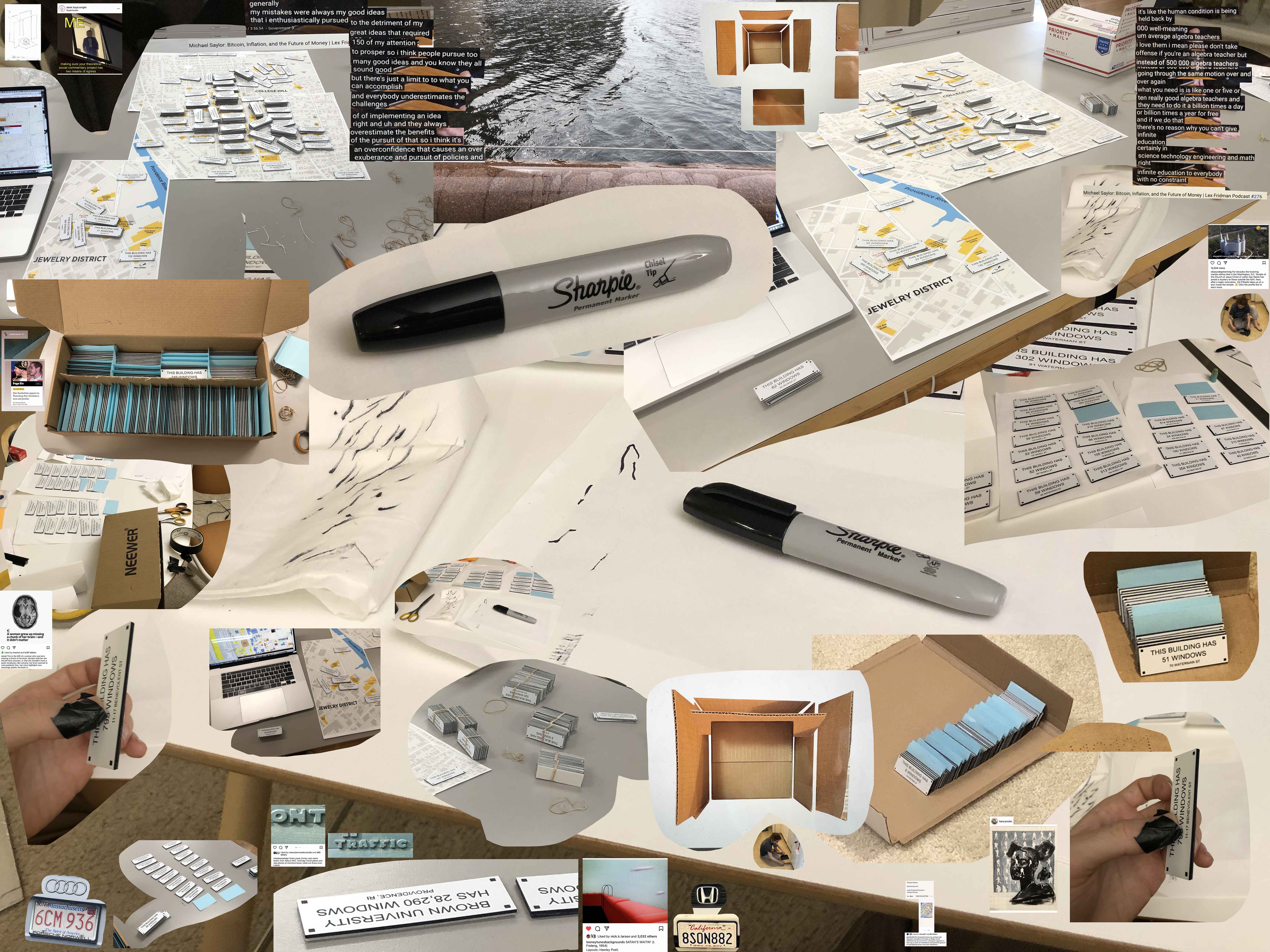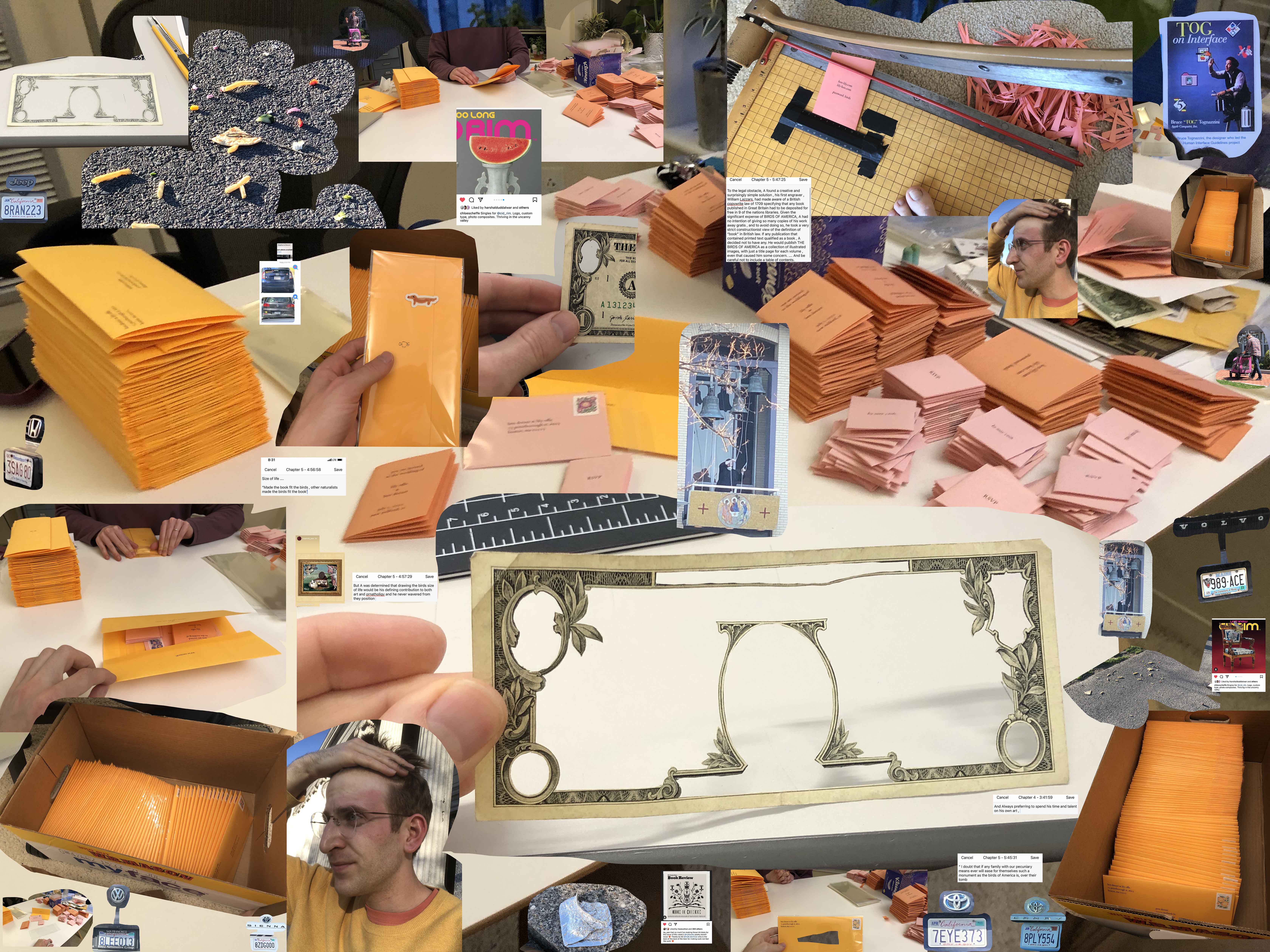Wednesday, May 4, 2022
Crane lacked Whitman's talent for advertising. The one stunt he came up with, as reported by his Sytacuse classmate Frank Noxon, was to hire four men "to sit all day in front of one another in New York elevated trains, reading and holding up the volume so that passengers would think the metropolis was Maggie-mad."
— Paul Auster, Burning Boy: The Life and Work of Stephen Crane
Tuesday, May 3, 2022
What it is that matters enough to me.
— BU student
Monday, May 2, 2022
If not for his subsequent work, the Sullivan County cycle would have vanished from human memory, in the same way most writings by most writers have vanished since the begining of time.
— Paul Auster, Burning Boy: The Life and Work of Stephen Crane
Sunday, May 1, 2022
Waterfall at Vanderbilt
— @henrynuhn
Saturday, April 30, 2022
You're like a rubber ducky, just bringing air in and out.
— Lily
Friday, April 29, 2022
Public speech can have great urgency and intimate import. Yet we know that it was addressed not exactly to us, but to the stranger we were until the moment we happened to be addressed by it.
— Michael Warner, "Publics and Counterpublics (abbreviated version)"
Thursday, April 28, 2022
I don’t think he’s as random as he allows himself to appear. I think it’s much more thought through.
— Walter Isaacson's reply to "Musk is famous for trolling, making explosive off-the-cuff remarks and reversing consequential statements. How do you handle that in a long form narrative, knowing that his positions could look very different after publication?," "What Makes Elon Musk Tick?," The New York Times
Wednesday, April 27, 2022
The main reason we call things one way or another is taxes.
— Papermaking guest
Tuesday, April 26, 2022
Is this for business?
— Bank teller
Monday, April 25, 2022
On the other hand, though, the enterprise was over, and "whatever works he might afterwords engage in, the great work of his intellectual life was finished."
— Gregory Nobles, John James Audubon: The Nature of the American Woodsman
Sunday, April 24, 2022
I can't come back afterwords and, you know, walk down the grocery aisle where ther are 50 different choices for canned peas and not sort of feel that lived tension. That lived tension of the privilage that I have here in the U.S. and then I have a choice about what to do with that privilege, and the last thing I want to do is start, you know, doing stories about dandelions. There's far more imporant things to do on this very limited time that I have on the planet.
— Skye Fitzgerald, "Skye Fitzgerald: Hunger, War, and Human Suffering | Lex Fridman Podcast #278"
Saturday, April 23, 2022
We should put their mail in it.
— Lily on someone's birdhouse.
Friday, April 22, 2022
Even when the printed matter in question is fiction, its bibliographical identity is factual or fixed: we trust that any printed matter at hand was published by the publisher indicated, authored by the author named, and addresses a reading public in an edition of like copies. When two people read “the same” book, they can each read different copies and be sure—even unthinkingly so—that they can compare notes. People are “on the same page,” we say, with confident approbation. Certainties like these help make modern texts self-evident, giving them that “air of intrinsic reliability” that today frames print media.
— Lisa Gitelman, "Near Print and Beyond Paper: Knowing by *.pdf," Paper Knowledge
Thursday, April 21, 2022
Donations go towards my general living costs & printing/commuting/munching expenses as well as development of my website, jimmystangents.com.
— Jimmy Cole's Old Granary Burial Ground guide
Wednesday, April 20, 2022
"Allowing two pigeons to the square yard, we have one billion, one hundred and fifteen million, one hundred and thirty-six thousand pigeons in one flock." A billion-plus, perhaps two billion or more—who could really tell, and with such massive number of birds, whatever they might be, who could really worry? What mattered more to most people on the ground was the opportunity to kill pigeons by the thousands, and accounts of the eager anticipation of the pigeons shoot, became almost a literary staple of antebellum nature writing.
— Gregory Nobles, John James Audubon: The Nature of the American Woodsman
Tuesday, April 19, 2022
Which is Alia Crum's statement... she says, anything that you do and experience, but especially stress, is the consequence of that thing and what you believe about that thing.
— Andrew Huberman, "Andrew Huberman: Focus, Stress, Relationships, and Friendship | Lex Fridman Podcast #277"
Monday, April 18, 2022
One day waiting in lines at Magic Kingdom visualized
— @jenniferxdaniel
Sunday, April 17, 2022
A Norweigian forest cat allowed to roam freely through the building and grounds of the institution, cared for by a democratically elected University art student, who is provided with full bursary for tuition fees and living costs to account for its care. Funded with the investment of the entire budget of a public art commission associated with the institution, awarded to the artist."
— Ryan gander, wall text for "This is Public Art/Hands in empty pockets with nothign left to lose, 2022," @ryanjgander
Saturday, April 16, 2022
Generally, my mistakes were always my good ideas that I enthusiastically pursued ot the detriment of my great ideas that required 150% of my attention to prosper.
— Michael Saylor, "Michael Saylor: Bitcoin, Inflation, and the Future of Money | Lex Fridman Podcast #276"
Friday, April 15, 2022
To the legal obstacle, Audubon found a creative and surprisingly simple solution. His first engraver, William Lizars, had made him aware of a British copywright law of 1709 specifying that any book published in Great Britain had to be depositied for free in nine of the nation's libraries. Given to the significant expense of Birds of America, Audubon had no intention of giving so many copies of his work away gratis, and to avoid doing so, he took a very strict constructionist view of the definition of "book" in British law. If any publication that contained printed text qualified as a book, Audubon decided not to have any: he would publish The Birds of America as a collection of illustrated images, with just a title page for each volume. Even that caused him some concern.
— Gregory Nobles, John James Audubon: The Nature of the American Woodsman
